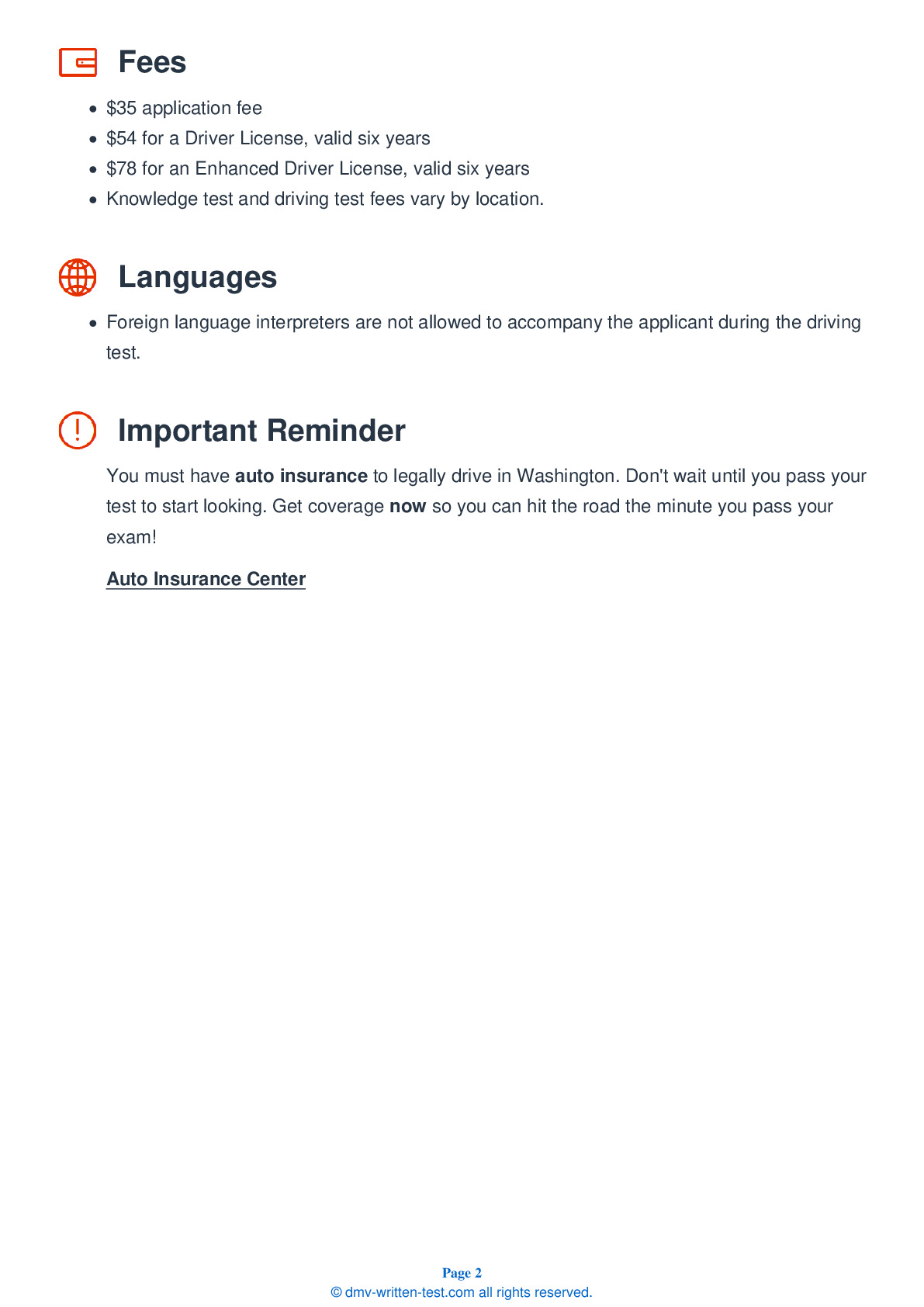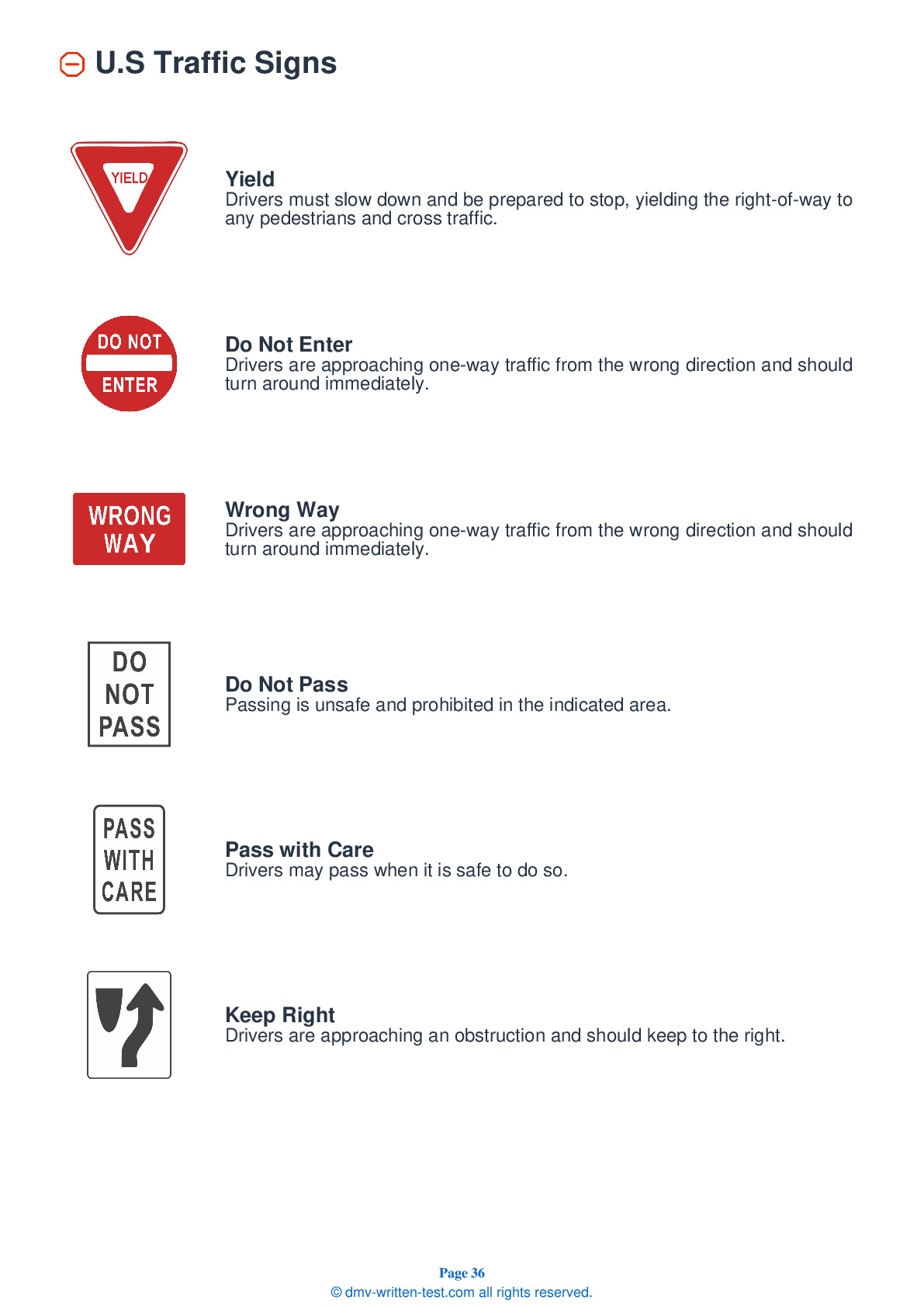2026 Washington Permit Test 13
The following questions are from real DMV written tests. These are some of the actual permit questions you will face in Washington. Each permit practice test question has three answer choices. Select one answer for each question and select "grade this section." You can find this button at the bottom of the drivers license quiz. For a complete list of questions and answers for Washington please visit https://cheat-sheets.dmv-written-test.com/en/washington/car.
Number of Tests
Number of Question
Passing Score
1. Don’t follow other cars too closely because:
Explanation
If you follow too closely and the vehicle in front of you slows or stops suddenly, you may not have enough time to avoid a collision.
2. A person who drives much slower than the speed limit:
Explanation
Driving more slowly than the flow of traffic can be hazardous. If you are on a two-lane, two-way road and driving so slowly that traffic is backing up behind you, you are required to pull off the road and let the other vehicles pass. Only drive significantly under the speed limit when conditions require it.
3. The sign with this shape and color is a ____ sign.

Explanation
Pennant-shaped warning signs like this are only used to indicate a no passing zone.
4. You must stop at an intersection when you see a:
Explanation
A flashing red traffic signal has the same meaning as a stop sign. At an intersection with a flashing red light, you must come to a complete stop, look both ways, and proceed only after the intersection is clear.
5. When you hear the siren or see the flashing lights of an approaching emergency vehicle, you must:
Explanation
Yield the right-of-way to any approaching emergency vehicle that is using its flashing lights or siren, regardless of its direction of travel. You must immediately drive to the right side of the road and stop until the emergency vehicle has passed. If you are within an intersection, pass through the intersection before coming to a stop on the right side of the road.
6. A driver approaching a flashing red traffic signal must:
Explanation




